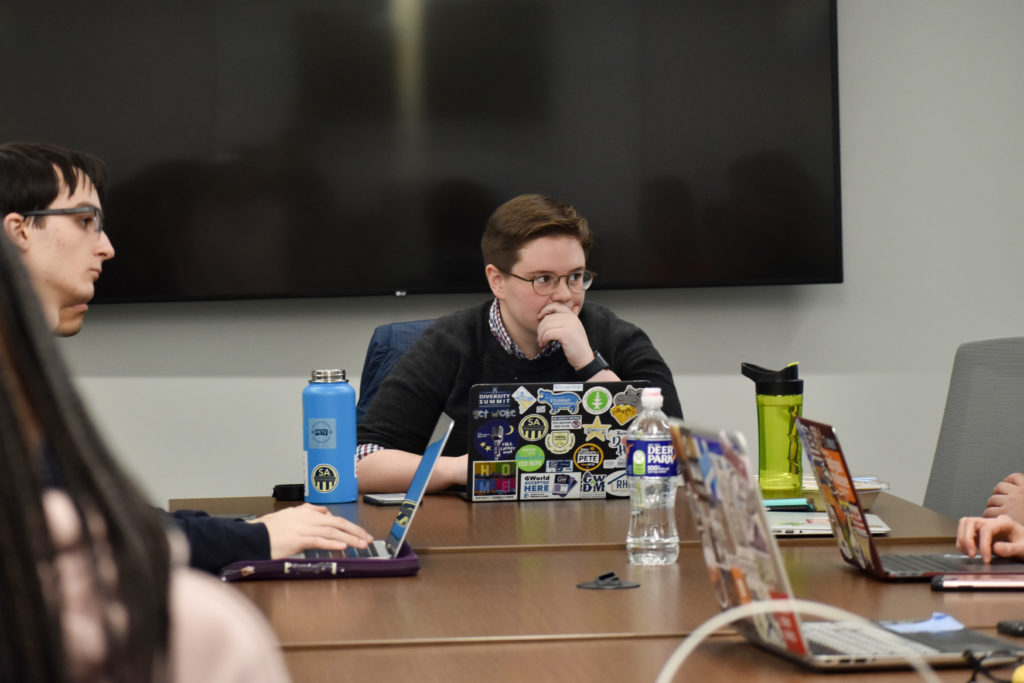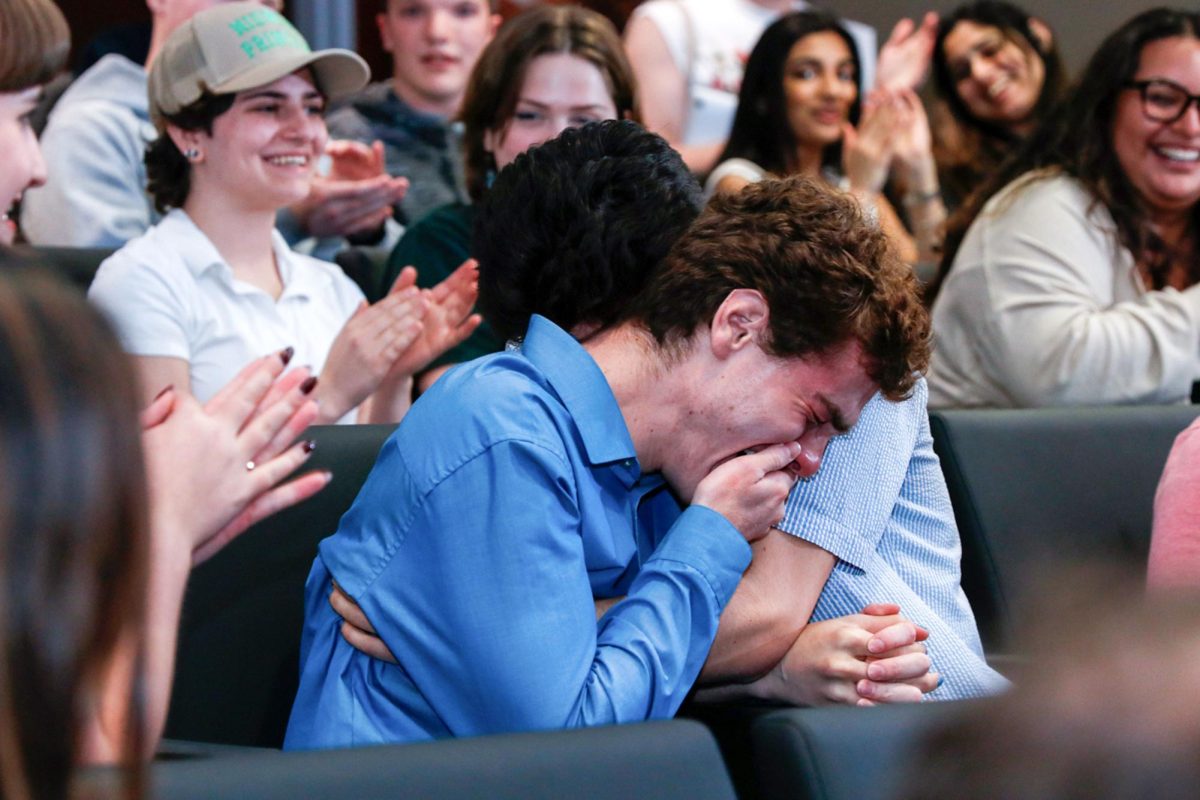A task force aiming to provide student input for the next five-year strategic plan met for the first time this semester to evaluate the missing links of recently released interim reports.
Faculty-led strategic planning committees released reports late last month outlining goals for GW’s steps to cultivate world-class faculty, high-quality undergraduate education, graduate education and high-impact research. SA President SJ Matthews said task force members are looking to address gaps in the report, like accessibility and sustainability, and will meet every two weeks throughout the spring.
Matthews said the task force is composed of about 15 members who will offer feedback on goals outlined in the reports, like increasing the share of STEM graduates and maintaining a greater percentage of high-quality faculty across studies.
“Really making sure that students are at the heart of our plan for the next five years and they’re not an afterthought – that’s my personal goal going into this planning process, is making sure that students are always at the forefront,” she said.
Matthews also serves on the faculty-led undergraduate committee task force – one of the four groups created to provide recommendations for the next five-year plan.
Members who attended this semester’s first meeting discussed five key aspects that the task force felt were omitted from the report – accessibility, sustainability, flexibility, accountability and intersectionality. Matthews said she will present the feedback about the interim reports compiled during the group’s first session to officials in two weeks.
“We came out of the meeting with what we felt were the five things that were lacking in the reports, and then that is what is going to be in the report compiled to present to administrators,” Matthews said.
She added that task force members are concerned that officials didn’t detail concrete steps to carry out the goals listed in the report, increasing the need for student representation at the upcoming faculty meeting.
Faculty also expressed concerns about the lack of detail in the interim report, which they said could hinder implementation of the report’s goals.
“That’s the issue with a strategic plan, it’s almost like a concept,” Matthews said at the first strategic task force meeting earlier this month. “Following through on that is a completely different ball game.”
The undergraduate education report suggested officials increase the number of “experiential learning opportunities” like study abroad, internships, service-learning and community engagement.
Matthews said experiential opportunities should be the top priority in the new strategic plan because the University is uniquely located in the heart of a city, providing students access to a wide range of hands-on experience options in their prospective fields.
“A big draw of GW is our location and the cool things around us, and we have yet to leverage that,” she said. “We’re the only school in our end of D.C. We can do a lot because of that.”
Kelton Estabrook, the SA’s co-deputy chief of staff, said at the task force’s general body meeting that the strategic plan should give students more flexibility for general education requirements so students can take classes in various concentrations.
“Let’s be honest – we all sit down for our science labs knowing the only reason we are here is to hit this G-PAC, and as soon as I exit this class, that’s it,” Estabrook said.
Students have complained that the expected general education requirements are too demanding, particularly for students who are double-majoring. Some requirements, like an arts general education course, do not double-count for multiple majors, like political science or criminal justice.
Yannik Omictin, a senior policy adviser for the SA, said the interim reports should include ways to make student schedules more flexible because students often struggle to meet both G-PAC and major requirements.
“Our gen-eds would be bearable if the courses were different and had at least some relation to what we’re doing,” Omictin said.







